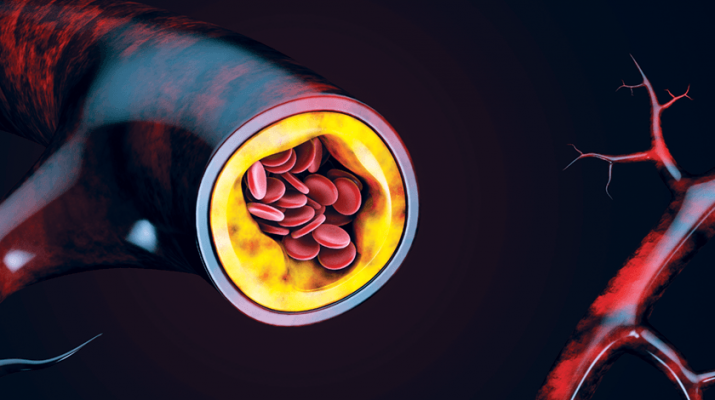What is cholesterol? Does it really even matter?
By Barbara Pierce

It’s confusing and hard to make sense of our cholesterol numbers. And you wonder does it really matter?
Yes, it does really matter, said Pat Zawko, director of quality resources, risk management and corporate compliance, Little Falls Hospital.
She said there’s a clear association between your cholesterol levels and your chances of having a heart attack or stroke.
“Your life depends on knowing your numbers,” she said. “Yes, it’s confusing; we’re exposed to a lot of misleading, conflicting, even false information.”
What is clear is the link between high cholesterol in your blood and serious heart problems. Whatever the link is, it is better to get CPR Classes in Chicago, for emergencies.
“Cholesterol is a soft, fat-like, waxy substance found in the blood stream and in all your body’s cells,” she explained. “Your body needs cholesterol to make hormones, vitamin D, and substances that help you digest foods. Your body makes all the cholesterol it needs.”
Some cholesterol is “good” and some cholesterol is “bad.”
HDL (high-density lipoprotein), or “good” cholesterol, is considered good because it removes the bad cholesterol from your arteries, said Zawko.
The higher the level of HDL, the better. Sixty milligrams per deciliter and above is healthy and protects you against heart disease and stroke.
Pulse Vascular explains that LDL (low-density lipoprotein), or “bad” cholesterol, makes up most of your body’s cholesterol. When your body has too much LDL cholesterol, it can clog your arteries and eventually choke off the supply of blood to your heart. When the blood flow to your heart is blocked, it can cause chest pain or a heart attack. LDL cholesterol levels should be less than 100 mg/dL.
“You want your total cholesterol level to be less than 200,” Zawko said. Your total cholesterol is a measure of HDL and LDL.
Many factors, including genetics, can play a role in your cholesterol levels. If a close relative has high cholesterol, you’re more likely to have it. However, many lifestyle factors, particularly diet and exercise, also affect levels of cholesterol.
Zawko has the following suggestions to lower your numbers and lower your risk of heart attack or stroke:
— Eat a heart-healthy diet: Eat more fruits and vegetables, whole grains, lean poultry and fish, and avoid excess sodium and sugar.
Labels are revealing
Too much sugar raises cholesterol. Read the labels. “Anything ending in ‘ose’ (fructose, maltose, glucose, sucrose) or syrups (corn syrup, rice syrup, malt syrup), and even “natural sweeteners” (agave nectar, coconut sugar, date sugar, honey, fruit juice concentrates) are all forms of added sugar which should be avoided. This is especially true if they are listed toward the top of the list of ingredients, said Zawko.
Avoid saturated fats and trans fat: Saturated fats are common in our diet. They are solid at room temperature — think cooled bacon grease. Common sources of saturated fat include red meat, whole milk and whole milk dairy foods, cheese, coconut oil, and many baked goods. A diet rich in saturated fats drives up total cholesterol, and tips the balance toward more harmful LDL cholesterol.
The worst type of dietary fat is the kind known as trans fat. As trans fats have no known health benefits and there is no safe level of consumption, they have been officially banned in the U.S.
As trans fats give foods a desirable taste and texture, many restaurants and fast-food outlets use trans fats to deep-fry foods. Trans fats are found in many foods — doughnuts, cakes, pie crust, biscuits, frozen pizza, cookies, crackers, and stick margarines.
To spot trans fats, look for the ingredient referred to as “partially hydrogenated oils.”
“Look for foods low in saturated, trans fats, and cholesterol to help reduce the risk of heart disease. Most of the fats that you eat should be polyunsaturated and monounsaturated fats, such as those found in fish, nuts and vegetable oils,” Zawko said.
— Get regular physical activity: Move more. Get up and move throughout the day, choose the stairs over the elevator, and take short walks. Even walking around the mall in winter months can do the trick. Aim for at least two and a half hours of exercise every week, say experts.
— Avoid tobacco smoke: Even second-hand smoke is bad. Smoke raises levels of LDL and lowers HDL. “Cigarette smoking harms nearly every organ of your body, causes many diseases and reduces the health of smokers in general,” said Zawko. “Cigarette smoking is the leading cause of preventable death in the U.S.”
— Limit alcohol to no more than one drink per day for women and two for men. Drinking more than this raises your levels.
— Maintain a healthy weight.
— Take prescription medication, if necessary: “Medication can be a supplement to lifestyle changes,” said Zawko. “There are several types of cholesterol medications available, including statins. Each works differently with different side effects. If one doesn’t work, try another. Your health care provider is the best person for you to discuss the need for medication.”
Keep your goal in front of you. Every day remind yourself that you are committed to your heart health.

